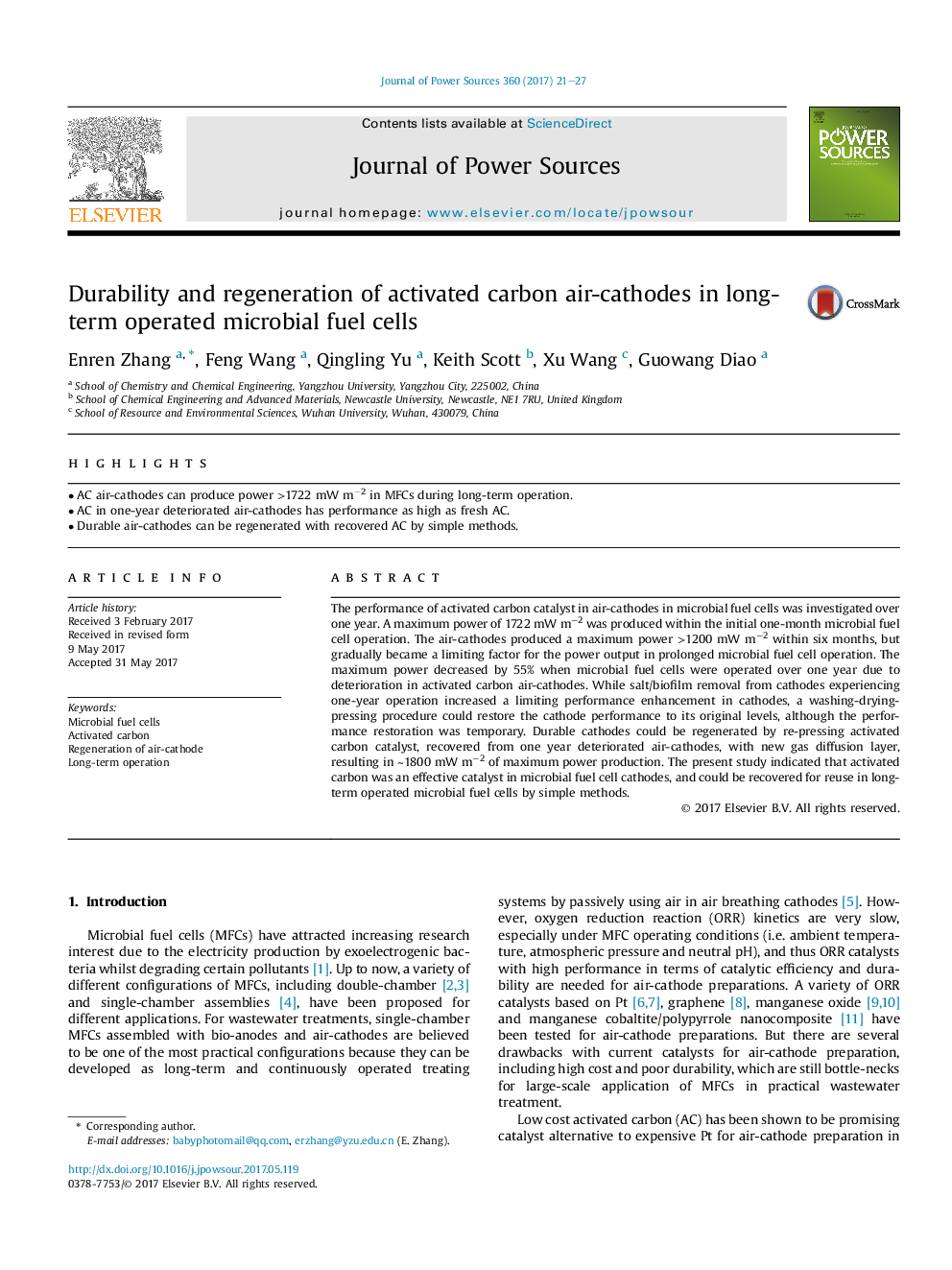| Article ID | Journal | Published Year | Pages | File Type |
|---|---|---|---|---|
| 5148999 | Journal of Power Sources | 2017 | 7 Pages |
Abstract
The performance of activated carbon catalyst in air-cathodes in microbial fuel cells was investigated over one year. A maximum power of 1722Â mWÂ mâ2 was produced within the initial one-month microbial fuel cell operation. The air-cathodes produced a maximum power >1200Â mWÂ mâ2 within six months, but gradually became a limiting factor for the power output in prolonged microbial fuel cell operation. The maximum power decreased by 55% when microbial fuel cells were operated over one year due to deterioration in activated carbon air-cathodes. While salt/biofilm removal from cathodes experiencing one-year operation increased a limiting performance enhancement in cathodes, a washing-drying-pressing procedure could restore the cathode performance to its original levels, although the performance restoration was temporary. Durable cathodes could be regenerated by re-pressing activated carbon catalyst, recovered from one year deteriorated air-cathodes, with new gas diffusion layer, resulting in â¼1800Â mWÂ mâ2 of maximum power production. The present study indicated that activated carbon was an effective catalyst in microbial fuel cell cathodes, and could be recovered for reuse in long-term operated microbial fuel cells by simple methods.
Related Topics
Physical Sciences and Engineering
Chemistry
Electrochemistry
Authors
Enren Zhang, Feng Wang, Qingling Yu, Keith Scott, Xu Wang, Guowang Diao,
